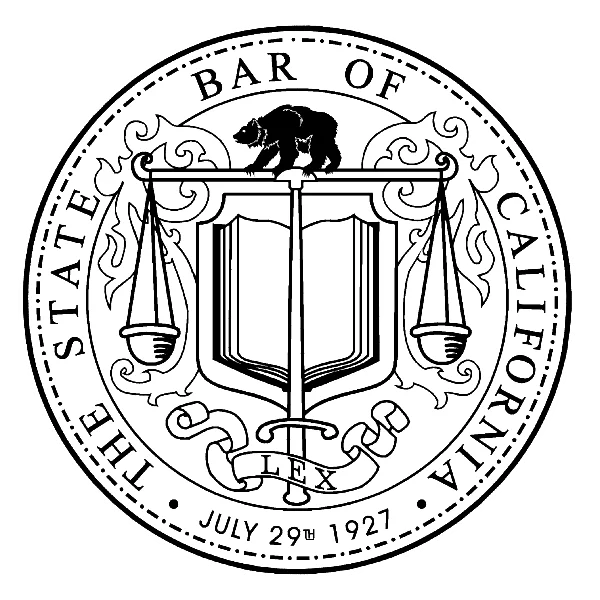When a loved one passes away due to another party’s negligence, surviving family members may be entitled to file a wrongful death claim and seek compensation for their loss. But in California, not everyone can file such a claim. Understanding who qualifies as a beneficiary is crucial when pursuing justice in these cases. To get more information on the process, visit our Wrongful Death Redding CA page for legal guidance tailored to your situation.
Who Can File a Wrongful Death Claim in California?
Under California law, only certain individuals are allowed to file a wrongful death claim. The primary goal of these lawsuits is to provide financial compensation to family members who relied on the deceased for support, either emotionally or financially. The law is specific about who qualifies as a beneficiary, meaning the individual who has the legal right to sue.
The following individuals are typically considered wrongful death beneficiaries in California:
1. Spouse or Domestic Partner
The spouse or registered domestic partner of the deceased has the legal right to file a wrongful death claim. California law prioritizes these individuals as they are usually the closest family members to the deceased, sharing both emotional and financial ties.
2. Children
If the deceased has children, they are also eligible to file a wrongful death claim. This includes both biological and adopted children. In cases where the deceased has minor children, the loss of parental guidance and financial support can be significant, making them primary beneficiaries in many cases.
3. Parents
In situations where the deceased has no surviving spouse, domestic partner, or children, the parents of the deceased may have the legal right to file a wrongful death claim. This is particularly common if the deceased was unmarried and without children, and the parents were financially or emotionally dependent on their child.
4. Financial Dependents
Certain individuals who relied on the deceased for financial support, even if they are not immediate family, may have the right to file a claim. This group includes:
- Stepchildren
- Legal guardians who were dependent on the deceased for financial support
- Putative spouses (those who mistakenly believed they were legally married to the deceased)
- Minor children who lived with the deceased and were financially dependent on them
It’s important to note that not every extended family member or friend has the right to file a wrongful death claim. The key factor is whether the individual was financially dependent on the deceased, and proving this dependency is essential in such claims.
Who Is Not Eligible to File a Wrongful Death Claim?
While many family members and dependents may be able to file a claim, there are limits. Under California law, the following individuals typically cannot file a wrongful death lawsuit:
- Distant relatives who were not financially dependent on the deceased
- Friends or acquaintances, even if they were close to the deceased
- Siblings who were not financially dependent on the deceased
For those not legally recognized as beneficiaries, there may still be options for seeking other forms of compensation, such as filing a survivor action for damages suffered by the deceased before death.
Proving Eligibility as a Beneficiary
If you’re pursuing a wrongful death claim in California, you’ll need to prove your eligibility as a beneficiary. This typically involves demonstrating the legal relationship between you and the deceased or providing evidence of financial dependency.
1. Legal Documentation
The easiest way to prove eligibility is through legal documentation showing your relationship to the deceased. For spouses and domestic partners, this could include a marriage certificate or proof of a registered domestic partnership. For children, birth certificates or adoption records may be necessary.
2. Financial Records
For individuals who need to prove financial dependency, such as stepchildren or putative spouses, financial records will be critical. These can include:
- Bank statements showing financial contributions from the deceased
- Tax returns that list the dependent status
- Household bills paid by the deceased
In some cases, testimony from friends or family members may also help establish the extent of financial support provided by the deceased.
Compensation Available to Beneficiaries in Wrongful Death Claims
Once eligibility as a wrongful death beneficiary is established, the next step is seeking compensation. Beneficiaries may be entitled to recover both economic and non-economic damages for the losses they have suffered.
1. Economic Damages
Economic damages are the financial losses resulting from the death of the loved one. These include:
- Medical bills related to the deceased’s care before death
- Funeral and burial expenses
- Loss of financial support the deceased would have provided
- Loss of household services such as childcare or home maintenance
- Loss of benefits like retirement contributions or health insurance
2. Non-Economic Damages
Non-economic damages compensate beneficiaries for the emotional impact of losing a loved one. These can be harder to quantify but are just as important as financial damages. Non-economic damages include:
- Loss of companionship
- Loss of emotional support
- Loss of parental guidance for children
- Emotional pain and suffering experienced by the surviving family members
In rare cases, punitive damages may also be awarded if the death was caused by particularly reckless or intentional behavior. Punitive damages are meant to punish the defendant and discourage similar conduct in the future.
Dividing Compensation Among Beneficiaries
When multiple beneficiaries are involved in a wrongful death claim, the compensation awarded must be divided among them. In California, this division is usually based on the level of financial dependency each beneficiary had on the deceased.
1. Determining Shares
The court or an agreement between the beneficiaries will determine how the compensation is divided. Typically, spouses or domestic partners receive the largest share of economic damages due to their financial dependency on the deceased. Children may also receive substantial compensation, particularly if they are minors who relied on the deceased for support.
2. Disputes Over Compensation
In some cases, disputes may arise between beneficiaries regarding how the compensation is divided. If the beneficiaries cannot agree, the court may intervene and determine how the damages should be split. A wrongful death attorney can help mediate these disputes and ensure that each eligible party receives a fair share of the compensation.
For more information on how wrongful death damages are calculated, you can visit our detailed guide on How much can you sue for wrongful death in California?.
Time Limits for Filing a Wrongful Death Claim
California law imposes a strict time limit, known as the statute of limitations, for filing wrongful death claims. In most cases, beneficiaries have two years from the date of death to file a lawsuit. However, this timeline can vary in certain circumstances, such as cases involving government entities or medical malpractice, which may have shorter deadlines.
Failing to file a claim within the statute of limitations can result in losing the right to seek compensation. Therefore, it’s important for beneficiaries to act quickly and consult with an attorney to ensure all legal deadlines are met.
Legal Assistance for Wrongful Death Beneficiaries
If you are a beneficiary in a wrongful death case, navigating the legal process can be overwhelming, especially when dealing with the emotional toll of losing a loved one. Working with a qualified wrongful death attorney can help you understand your rights, prove your eligibility, and pursue the compensation you deserve.
At Cibula Law, we specialize in wrongful death claims and are committed to helping beneficiaries in Redding, CA achieve justice. Whether you are a spouse, child, parent, or other dependent, our experienced legal team can guide you through every step of the process.
To discuss your case and explore your legal options, contact us today to schedule a consultation.








